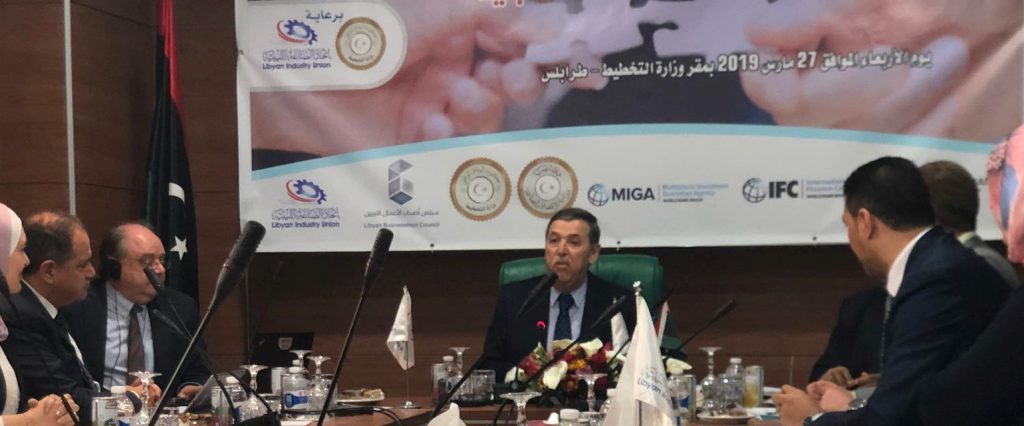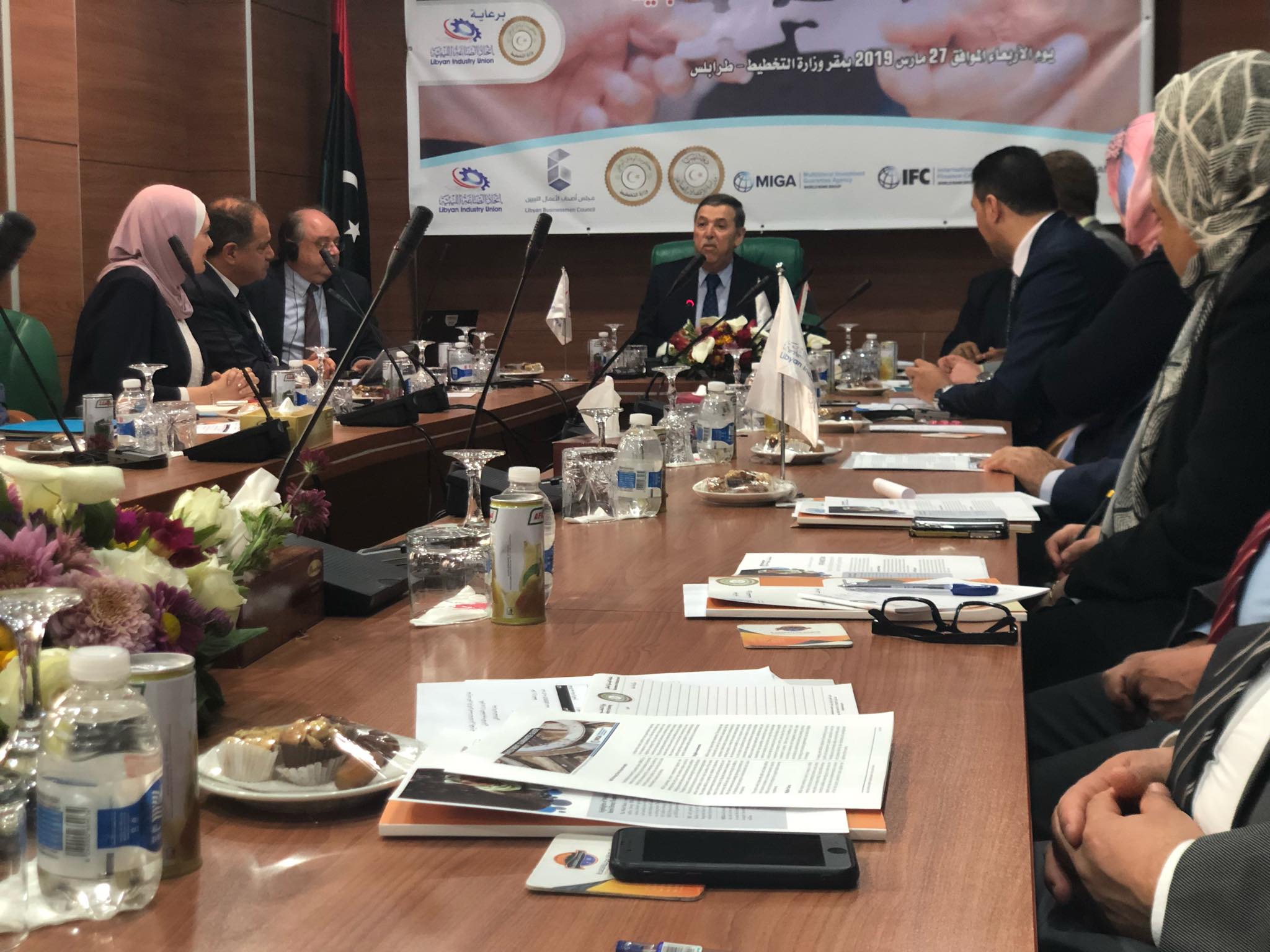By Sami Zaptia.

London, 28 March 2019:
The Faiez Serraj Ministry of Planning held an expanded meeting yesterday with the World Bank, a number of government departments and the private sector on implementing some reforms to reactivate Libya’s economy.
Neither the World Bank nor the Serraj government have released any information about the meeting, but attendees reported on the meeting to Libya Herald. The meeting was headed by Planning Minister Taher Jehaimi and attended by Michael Schaffer the World Bank‘s Libya Country Representative.
It will be recalled that in February this year, the World Bank announced a new strategy of support for Libya. It also reopened its Tripoli office with an official permanent presence. The strategy will be focused on restoring key services to citizens and promoting economic recovery as a critical contribution to the ongoing peace process.
The World Bank said that the new strategy was developed in response to a request from the Libyan government and draws on the Bank Group’s global experience working with countries coping with instability. It says that it aims to address urgent priorities while laying the groundwork for future recovery and reconstruction.
The new strategy was presented in a Country Engagement Note (CEN) that outlines the Bank Group’s approach to supporting the Libyan people over the next three years.
One of the two overarching goals of the CEN is to support concrete improvements in the lives of citizens by restoring access to dependable electricity and quality education and healthcare services.
The other principal goal is to accelerate economic recovery by helping build the capacity of the government to manage public funds, while developing the private and financial sectors. It will also promote transparency, accountability and inclusion in all government decision making and service delivery. This, the World Bank said, will contribute to restoring trust between citizens and their government, which is a critical foundation of stability.
The World Bank said that the programme of support outlined in the CEN will be delivered through Technical Assistance and Reimbursable Advisory Services.
It also said that its IFC arm will provide advisory services to support the development of public private partnerships, sources of financing for small and medium enterprises, and business support services. Should conditions improve and opportunities for private investment emerge, the IFC would be ready to support with investments and MIGA with risk guarantees, the World Bank explained. fff







